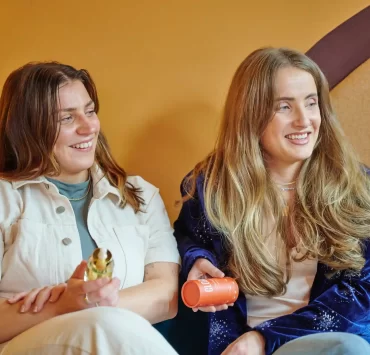January can feel like an overwhelming mix of messages and marketing, all pushing the idea of change and self-improvement—right when we’re in the darkest, least motivating time of the year. For neurodivergent women, this pressure can hit even harder, making it particularly tough to navigate the expectations and noise of the season. It’s easy to feel stuck, unsure where to start, or already behind.
To offer a dose of support and a place to start, we spoke to North Berwick-based ADHD coach Rosie Arthey, who has helped hundreds of neurodivergent women thrive both personally and professionally. Being neurodivergent herself, Rosie knows firsthand how overwhelming this time of year can be. With experience supporting clients across a range of neurotypes—including ADHD, Autism, Dyslexia, Dyspraxia, and more—she provides tailored coaching to help individuals create strategies that truly work for them, rather than feeling like they’re constantly falling short.
Here, Rosie shares her five top tips to help neurodivergent women tackle this challenging time with confidence—without the pressure of having to do it all.
Ditch comparison
Neurodiversity highlights the infinite variation in how human minds function. There is no single ‘normal’ brain or ‘right’ way of thinking. Comparing yourself to others when there’s no ‘right’ way to be or to do things can be unhelpful at best and harmful at worst.
Social media, in particular, is a comparison minefield. By regularly exposing ourselves to others’ ‘best bits’, we risk losing sight of ourselves. Consider taking a social media break, or develop an affirmation to ground yourself when comparison creeps in. Some of my favourites include:
- I am good enough just as I am.
- I’m doing the best I can with what I have.
- I’m at my best when I focus on myself instead of the opinions or achievements of others.
Adopt self-compassion
Research suggests that low self-compassion can negatively impact the mental health of adults with ADHD compared to those without it. Dr Kristin Neff, a leading researcher in self-compassion, describes it as treating yourself with the kindness you’d offer a close friend.
By practising self-compassion, we accept ourselves as we are, without the constant need to change. As Carl Rogers, the father of person-centred therapy, famously said: “When I accept myself just as I am, then I can change.”
Self-compassion doesn’t mean inaction. Dr Neff’s concept of Fierce Self-Compassion involves taking action in a kind and purposeful way. Her books, Self-Compassion: The Proven Power of Being Kind to Yourself and Fierce Self-Compassion: How Women Can Harness Kindness to Speak Up, Claim Their Power, and Thrive, explore this further. Kristin also shares free resources and exercises on her website at self-compassion.org.
Remember rest is productive
Rest is not a reward—it’s a vital part of growth and change. Reframing rest as productive can help you rest without guilt. In Wintering: The Power of Rest and Retreat in Difficult Times, Katherine May reminds us that “extraordinary things can flourish in the dark.” May, who is Autistic, shares some helpful resources on her website.
Rest doesn’t have to mean doing nothing; in her TED Talk, Dr Saundra Dalton-Smith identifies seven types of rest: physical (passive or active), mental, sensory, creative, emotional, social, and spiritual. Neurodivergent brains may particularly benefit from sensory, emotional, or social rest. Reflect on which type of rest you need most right now.
Discover your values
Carve out some time to focus on what you value in life. Getting clear on what’s important to you by clarifying your values is a crucial step toward living a life that feels authentic and supporting you to make meaningful changes to move in that direction. Brené Brown advocates for resetting rather than setting resolutions, which she discusses in her podcast (Living Into Our Values). She also provides free exercises to help you get clear on your values.
Create neurodivergent-friendly goals and embrace body doubling
Goals rooted in your interests and values are more likely to motivate you. Reflect on what energises you, what you enjoy, and what truly matters. If you’re overwhelmed by ideas, try creating a ‘now’ and ‘later’ list to help you prioritise.
If getting started is a challenge try breaking your goals into tiny, manageable steps, and track your achievements with a ‘done’ list rather than a daunting ‘to-do’ list. This will help remind you of your progress, rather than leaving you feeling demotivated by what you haven’t done.
If you struggle to start or stay motivated, consider the body-doubling technique. This involves working alongside someone else for accountability. For instance, I recently completed a university assignment by body doubling with a coursemate over Zoom. You can try this with a trusted friend or use a body-doubling app like Flow Club.
Find more from Rosie at brightcognition.co.uk. Follow her on Instagram @rosie_adhd_coach and on LinkedIn at linkedin.com/in/rosie-arthey.















